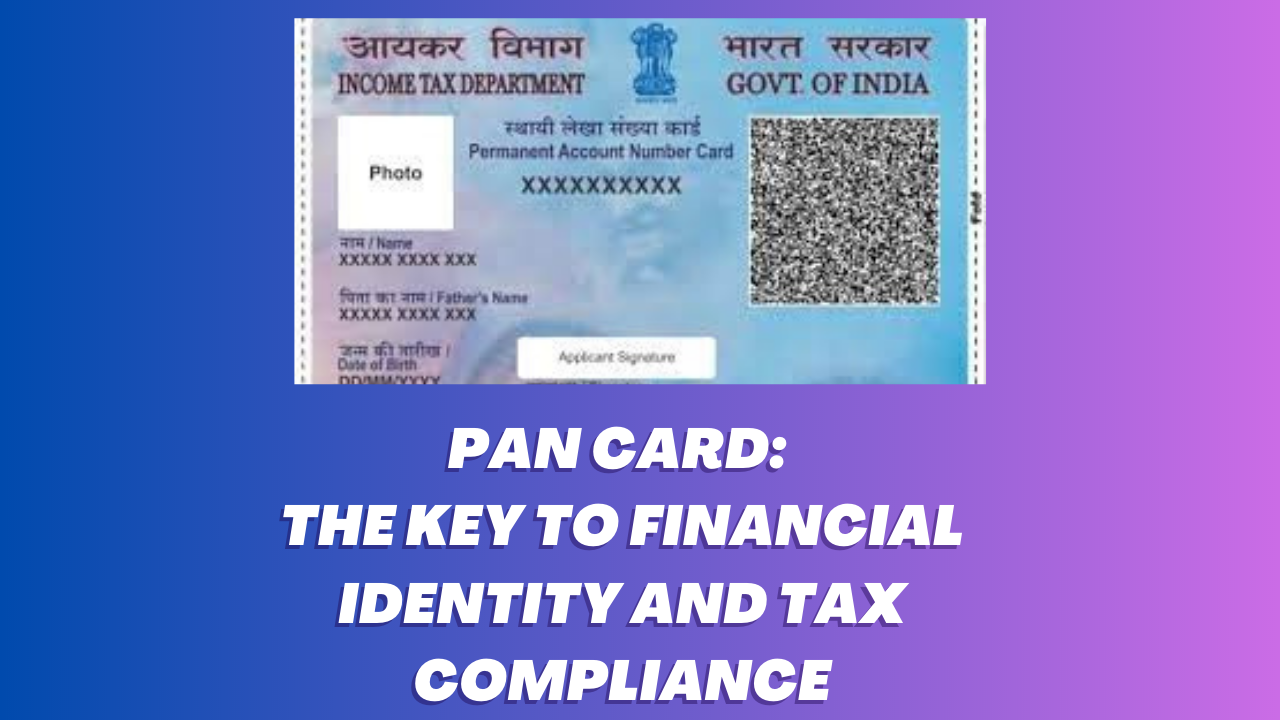The PAN (Permanent Account Number) is a unique identification alphanumeric number consisting of 10 characters, assigned to Indian taxpayers. It serves as a means of identifying various individuals and entities who are liable to pay taxes in the country.
The PAN system is a computer-based method that records all tax-related information for a taxpayer under a single PAN number. This unique identification number acts as the primary key for storing tax-related information, ensuring that no two taxpayers have the same PAN. The PAN is used to track and link various financial transactions, ensuring transparency and accountability in the tax system.
How to Apply for PAN Card
You can apply for a PAN Card either online through the websites of Protean e-Gov Technologies Limited (formerly NSDL) or UTIITSL, or offline at any district-level PAN agency.
For Indian citizens and NRIs, including companies, NGOs, partnership firms, local bodies, trusts, etc., the application form is Form 49A. Foreigners and foreign entities need to use Form 49AA. After filling out the appropriate form and attaching the required documents, submit them to the Income Tax PAN Services Unit.
You can use the acknowledgment number provided to track the status of your PAN application for new or duplicate PAN, or for corrections/changes. The entire process of printing and dispatching PAN cards typically takes around 2 weeks or 14 days, as per the Protean e-Gov Technologies Limited website (formerly NSDL).
Documents required for Applying for a PAN card
To apply for a PAN card, you will need to provide one of the following identity proof documents:
1. Aadhar card
2. Voter ID card
3. Passport
Ensure that you accurately fill out the application form to avoid any potential issues with your PAN card application. Providing a valid and appropriate identity proof is crucial to successfully obtaining your PAN card.
Uses and Benefits of Having PAN Card
The PAN card holds significant importance for taxpayers as it is a vital document used in various financial transactions to track the flow of money. It is crucial when paying income tax, receiving tax refunds, and receiving official communication from the Income Tax Department.
Though the Indian Budget 2019 proposed the use of Aadhaar instead of PAN for certain purposes, the rules are still being developed. Nevertheless, PAN remains essential for numerous monetary transactions.
Uses of PAN in Financial Transactions:
- Quoting PAN is mandatory while paying direct taxes and income tax.
- When registering a business, PAN information needs to be provided.
- PAN information is required for various financial transactions.
General Uses and Advantages of Having PAN:
- PAN card serves as a valid identity proof as it contains essential information like name, age, and photograph.
- It helps in accurately tracking tax payments, reducing the risk of duplicate payments.
- Since each PAN is unique, it prevents misuse for tax evasion or fraudulent activities.
- PAN card is used to avail utility connections such as electricity, telephone, LPG, and internet services.
Overall, having a PAN card is crucial for financial and official purposes, making it an indispensable document for taxpayers and individuals conducting various transactions.
PAN Card Eligibility
As per Section 139A of the Income Tax Act, the following entities are eligible and required to obtain a Permanent
Account Number (PAN):
1. Individuals: Any individual who has paid income tax or is liable to pay income tax based on the applicable tax slabs should obtain a PAN.
2. Business or Professional Practice: Individuals or entities involved in a business or professional practice that generates an annual turnover of more than Rs. 5 lakh in any assessment year must obtain PAN.
3. Importers and Exporters: Importers and exporters who are liable to pay any form of tax or duty charges as per the Income Tax Act or other relevant laws should also have a PAN.
4. Trusts, Charitable Organizations, and Associations: All types of trusts, charitable organizations, and associations, whether they are required to pay income tax or not, should apply for a PAN.
5. Minors, HUFs, Partnerships, Companies, and Others: PAN is mandatory for all tax-paying entities, including minors, Hindu Undivided Families (HUFs), partnerships, companies, body of individuals (BOIs), and others.
In summary, any entity or individual who is liable to pay income tax or engages in specified financial activities as per the Income Tax Act should obtain a PAN.
Frequently Asked Questions (FAQs) about PAN Card:
1. Is PAN card mandatory for all taxpayers in India?
Yes, PAN card is mandatory for all taxpayers in India, as per the provisions of the Income Tax Act.
2. Can I apply for PAN card online?
Yes, you can apply for PAN card online through the websites of Protean e-Gov Technologies Limited (formerly NSDL) or UTIITSL.
3. What documents are required to apply for a PAN card?
Documents like Aadhar card, Voter ID card, or Passport can be used as identity proof while applying for a PAN card.
4. Is it necessary to have a PAN card for minor children?
PAN card is not mandatory for minor children. However, if they have taxable income or are involved in financial transactions, they may need a PAN card.
5. Can I use my Aadhar number instead of PAN for filing taxes?
The government has proposed using Aadhaar number in place of PAN for certain purposes, but the rules are still under development.
Conclusion:
The PAN card is an essential document for taxpayers in India. It serves as a unique identification number and is required for various financial transactions, income tax filing, and official communication with the Income Tax Department. Whether you are an individual, a business, a trust, or any other taxable entity, obtaining a PAN card is mandatory to comply with the tax laws in the country. Applying for a PAN card is now more convenient with online options, making it easier for taxpayers to obtain this important identification document.
Read More:
- Post Office Savings Account: Benefits and How to Open an Account
- 7 Simple Ways to Start Saving for a Bright Future
- How can I grow my savings fast?
- Saving Account: Types, Interest rates, and eligibility criteria




